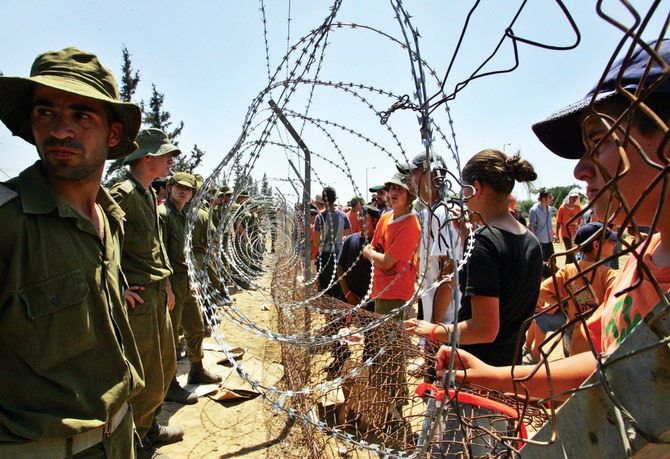
It was heart-warming on a very cold Sunday in Edinburgh, Scotland, to see more than 300 people braving the weather in order to attend a symposium on the grave situation, thousands of miles away, in blockaded Gaza. It took place a week before we all got a chilling reminder of the volatility of the situation along the border between Gaza and Israel. The ritual of tit-for-tat of Hamas rockets and Israeli airstrikes should leave no one in any illusion about the risks taken in not searching for a political answer to the dire situation in Gaza that inevitably leads to conflict and bloodshed. I must confess that, when I was first invited by the organizers of the Balfour Project, a number of whom I know personally and respect, to be one of the speakers at this gathering, I was somewhat hesitant. I was afraid that the legitimate concerns and genuine criticism of Israel’s policies toward the Palestinians, and especially Gaza, might turn into Israel-bashing, questioning the right of the Jewish state to exist at all.
To my great relief, the tone that was set from the very beginning by veteran diplomat Sir Vincent Fean, a former Consul-General for Jerusalem who now chairs the Balfour Project, of the need for reflection and constructive criticism of those who are responsible for the plight of the Gazan people was respected throughout by all speakers and by the audience. It made the day all the more powerful.
There was also an inescapable sense of “what can be said about Gaza that hasn’t been said thus far?” And, since it is repeatedly highlighted, why doesn’t such a dire situation shake the international community to act assertively and with a sense of urgency to stop the unbearable suffering there? For those who gathered last week at Edinburgh University, the answer to that was twofold. First, there is a need to constantly remind the world about the situation in Gaza and the root causes of it in order keep it in the minds of the international community. And, second, raising awareness of the humanitarian crisis in the Gaza Strip is not enough: What is necessary is a concise but powerful action plan.
It is a truism that we cannot consider the inhuman blockade of Gaza, and the resultant humanitarian crisis that is fast evolving into a humanitarian disaster, in isolation from the impasse in bringing either an interim or a permanent agreement between the Israelis and the Palestinians. Or even an agreement between the political forces in Israel, Palestine and the elements of the international community that are capable of having an impact on Gaza’s predicament.
Until there are changes among these political actors that result in an alignment in favor of a peaceful solution, it will be up to the rest of us to keep reminding everyone of the inexcusable living conditions suffered by this tiny territory’s 2 million inhabitants, of whom two-thirds are refugees.
Israel’s voters can make a difference in next month’s elections; the Palestinian Authority and Hamas can, for the good of their own people, agree on what they have in common instead of what divides them; and the international community, well, it could for once live up to its rhetoric of caring for the suffering of the Palestinians and begin to play an active role in making peace a reality.
All that they ask for is jobs, their rights, and to live in dignity and freedom. Not much to ask — unless, apparently, one lives in Gaza.
Yossi Mekelberg
For decades, the poverty and deprivation that the Gazan people have had to endure is due to them being used as pawns in a bigger political game. For more than 70 years, their enclave has depended for its well-being on foreign handouts. And, ever since Hamas, the militant Islamist group that rules the Strip with an iron fist, came to power more than 12 years ago, Gazans have had to endure no end of cruel, punitive, tit-for-tat actions by Israel’s armed forces and the destruction caused by round after round of hostilities between Hamas and Israel.
Last week’s harsh response by Hamas to the hundreds of Palestinians who took to the streets to voice their frustrations with their living conditions illustrates their desperate situation: Of living in the world’s largest open-air prison created by the Israeli blockade; shot to death or maimed for life if they get too close to the razor wire; and oppressed by their own government. All that they ask for, as one of the leading demonstrators said, is jobs, their rights, and to live in dignity and freedom. Not much to ask — unless, apparently, one lives in Gaza.
One of the most moving, though disturbing, sessions last week in Edinburgh was the one that dealt with medical care in Gaza. It typifies the huge gap between the needs of patients and what the extremely dedicated doctors are able to do for them, considering the shortages of medical personnel, drugs and equipment, which particularly affects, for instance, cancer patients or those who require dialysis. The alternative — to seek treatment abroad — has been blocked by the inhuman policies of the Israeli government.
The evidence, as expressed by the panels and the audience, left no doubt in participants’ minds that raising awareness of the situation in Gaza, as important as that is, is not enough; and so an action plan was drafted to be presented to the international community. First, the plan calls for Israel “to end the closure of Gaza. Twelve years of blockade have blighted lives, increased aid dependency and destroyed hope, especially among the young.”
However, this action plan rightly recognizes that the situation is a derivative of the bigger picture, which has to be addressed and includes, among other elements, the need for accountability and adherence to international law and UN resolutions, with serious penalties for non-compliance; and condemning the illegal Israeli settlements as a major hindrance to peace. To ensure this, the gathering called on the UK government and the EU to recognize the state of Palestine alongside Israel, while protecting everyone’s fundamental rights.
This might appear to some as no more than a pipe dream, considering the realities on the ground. But it is not and, everywhere and anywhere, people of good conscience should raise their voices for a fair and just peace for all who live between the Jordan River and the Mediterranean, as well as those in exile, and express such wishes in a constructive and assertive manner. This was the message I took away from Edinburgh.
• Yossi Mekelberg is professor of international relations at Regent’s University London, where he is head of the International Relations and Social Sciences Program. He is also an associate fellow of the MENA Program at Chatham House. He is a regular contributor to the international written and electronic media. Twitter: @YMekelberg
Disclaimer: Views expressed by writers in this section are their own and do not necessarily reflect Arab News" point-of-view












